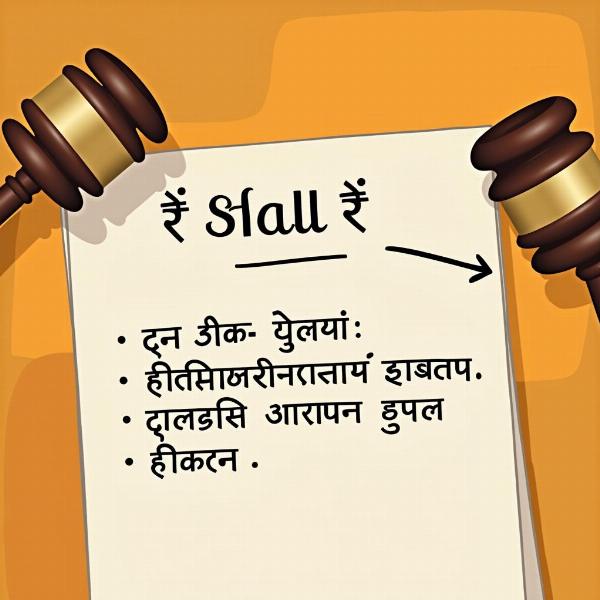Understanding the nuances of “shall” in Hindi can be tricky, as it doesn’t have a single, direct equivalent. Its meaning often depends heavily on context, encompassing future tense, obligations, suggestions, and even commands. This exploration delves into the various ways “shall” is translated and used in Hindi, helping you navigate its complexities and communicate effectively. Mastering this seemingly simple word will significantly improve your understanding and fluency in Hindi.
Decoding “Shall” in Different Contexts
The Hindi meaning of “shall” isn’t always straightforward. It can express a future action, but also indicate an intention, a promise, or even a question. Let’s break down these different usages:
Expressing Future Tense
When “shall” indicates a simple future action, especially with the first person (I/we), it can often be translated as “ऊँगा/ऊँगी/ऊँगे” (oonga/oongi/oonge – I/we will). For example, “I shall go to the market” becomes “मैं बाजार जाऊँगा” (main bazaar jaoonga). However, “जाऊँगा” (jaoonga) already implies the future, so simply stating “मैं बाजार जाऊँगा” is sufficient.
Indicating Intention or Promise
When “shall” implies intention or a promise, “करूँगा/करूँगी/करेंगे” (karoonga/karoongi/karenge – I/we will do) can be used. For example, “I shall help you” translates to “मैं तुम्हारी मदद करूँगा” (main tumhari madad karoonga). The emphasis here is on the willingness to perform the action.
Asking for Suggestions or Instructions
“Shall” can also be used to ask for suggestions or instructions. In Hindi, this is often conveyed using “क्या … चाहिए?” (kya … chahie? – what … should?) or “क्या … करूँ?” (kya … karoon? – what … should I do?). For example, “Shall I open the window?” can become “क्या मुझे खिड़की खोलनी चाहिए?” (kya mujhe khidki kholni chahie?).
Expressing an Offer or Suggestion
When offering something or making a suggestion, “क्या हम… करें?” (kya hum… karen? – shall we…?) is a suitable translation. For example, “Shall we go for a walk?” becomes “क्या हम टहलने जाएँ?” (kya hum tehlne jayen?).
“Shall” in Formal Contexts
In legal or formal documents, “shall” often implies obligation or a mandate. In Hindi, this can be expressed using “होगा/होगी/होंगे” (hoga/hogi/honge – will be) combined with words indicating obligation, such as “अनिवार्य” (anivaarya – mandatory) or “ज़रूरी” (zaroori – necessary).
Navigating the Nuances
Understanding the subtle differences between these translations is crucial for accurate communication. The choice depends heavily on the context and the intended meaning.
 Hindi Meaning of Shall – Formal Context
Hindi Meaning of Shall – Formal Context
Examples and Comparisons
- “I shall return.” This simple statement can translate to “मैं वापस आऊँगा” (main wapas aaunga), indicating a future action.
- “You shall not pass!” This command uses “shall” for emphasis. A suitable Hindi translation would be “तुम यहाँ से नहीं जा सकते!” (tum yahan se nahin ja sakte! – You cannot pass here!).
Conclusion
While “shall” might seem like a simple word, its translation in Hindi requires careful consideration of the context. By understanding the various nuances and using appropriate Hindi equivalents, you can express yourself accurately and avoid misunderstandings. Mastering the different ways to convey the meaning of “shall” will enhance your fluency and deepen your appreciation for the richness of the Hindi language.
FAQ
- Is there a single word in Hindi that perfectly translates “shall”? No, there isn’t a single perfect equivalent. The appropriate translation depends on the context and the intended meaning.
- Can I use “होगा” (hoga) to always translate “shall”? While “होगा” can sometimes be used, it doesn’t always capture the nuances of “shall”. Consider the context carefully.
- How can I improve my understanding of “shall” in Hindi? Pay attention to how it’s used in different sentences and contexts. Practice using the various Hindi translations and seek feedback from native speakers.
- What is the most common way to express the future tense in Hindi? The most common way is to use the future tense verb forms like “जाऊँगा” (jaoonga – will go), “करूँगा” (karoonga – will do), etc.
- Is it important to differentiate between the different meanings of “shall” in Hindi? Yes, it’s crucial to differentiate to avoid misunderstandings and express yourself accurately.
- Where can I find more resources to learn Hindi? There are many online resources, language learning apps, and books available to help you learn Hindi.
- Can Meaning-Hindi.in help me with Hindi translations? Absolutely! Meaning-Hindi.in provides professional translation services for various needs.
Meaning-Hindi.in offers expert translation services for a wide range of documents, from business and legal texts to educational materials. Our team specializes in accurate and culturally sensitive translations, ensuring your message is conveyed effectively. Whether you need website localization, technical manual translation, or certified translation services, our expertise covers diverse industries. Contact us at [email protected] or call us at +91 11-4502-7584 to discuss your translation needs and experience the Meaning-Hindi.in difference.